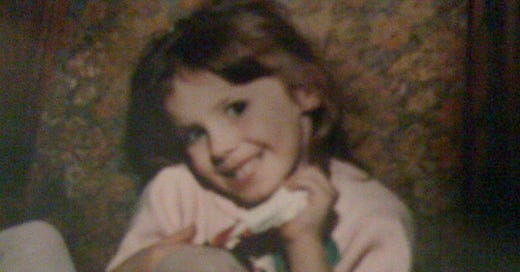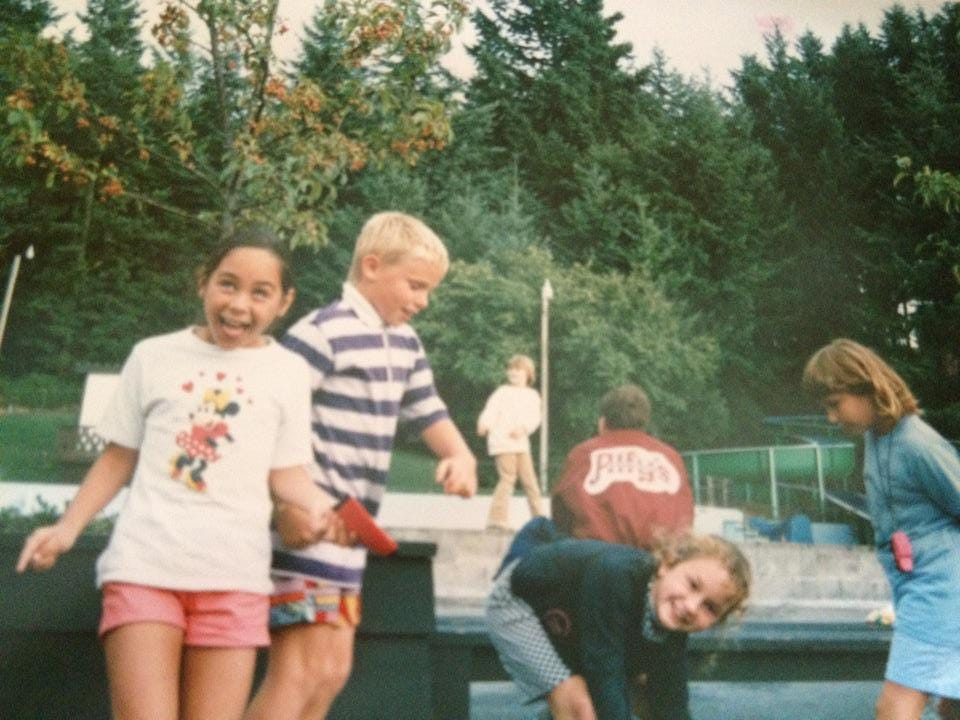(this post is from the archives and was originally published two years ago)
I have always felt weird.
Weird, as in different.
In elementary school, other kids thought I was weird, too. I always chalked this up retrospectively to having moved over ten times, sometimes several times a year. I was always the new kid. That’s why they thought I was weird, right?
Two months ago, when my psychiatrist asked if I’d ever thought I might be autistic, I said no. And then, maybe. After that session, I began remembering things.
I remembered being made fun of as a child for constantly humming.
I remembered that when I got my first walkman I never took my headphones off, and that when I worked as a firefighter I’d keep my earplugs in all the time, even if I wasn’t running a chainsaw. I thought of the meltdowns I often had, where I would flap my arms and hit, bite, and scratch myself. Meltdowns over things that didn’t seem to bother other people. How, as an adult, my headphones have been a staple of my life. I wear them whenever I leave the house, in the grocery store, on errands, on walks. I never stopped to think about why I need them, or that I need them at all.
I talked about this with my therapist.
And again with my psychiatrist.
“Do you think I may be autistic?” I asked, and she nodded. “I do,” she said. She described several experiences that many autistic people have, and after I left the office more memories came.
Last week, I saw my psychiatrist again and asked if we could discuss my diagnosis. She took her DSM-5-TR off the shelf and started going through the categories.
“Do you ever feel like you say the wrong thing in social situations? Like you say something and people react very differently than you thought they would?”
A succession of memories cascaded into my consciousness, from childhood and adulthood. “Yes,” I said. “It feels like I will say something that I think is common knowledge, and whoever I am with will react like I’ve said something wrong.”
I told her that I had always interpreted this as a kind of stupidity. Maybe other people simply understood things better than I did. And they were reacting that way because I had said something that revealed my lack of intelligence or understanding.
“It’s not stupidity,” she said. “When you were a child did people think you were stupid?”
“Sometimes,” I said. Then, I told her about the two years I’d lived with my grandparents. It was the longest I had ever stayed in one place throughout elementary school, from the ages of 7 to 9 years-old. “When I lived with them,” I said, “The teachers finally got to know me. I had a high reading proficiency and was hyper verbal. I was runner-up in my spelling bee one year. I loved to sing, and performed in front of the school several times.”
“You were smart,” she said, and I agreed, and told her that it was hard to think about. Hard, because I imagined what my life would be like if I had stayed there, in a relatively stable environment, rather than going back with my mom, where there was chaos. Once I was gone from my grandparents, I didn’t have any consistency, and I eventually ran away for the first time at twelve years-old. For my early adolescence I vacillated between homelessness and living in an abusive home. Until I was accepted into an alternative school, where I thrived.
But then, when I left home and started community college, I couldn’t do the basic things expected of me, like taking my car for oil changes, paying bills, attending classes on time and keeping up with homework. In class I was engaged and excited. Outside of class I was totally overwhelmed. I started using drugs (again) and eventually dropped out, deeply ashamed of my inability to function at a basic level.
My inability to function, which led to drug abuse and self harm, was not my fault.
I had never had a stable life at any point. But I was also autistic— totally overwhelmed by simple things like going to the grocery store. Anything that involved face-to-face contact with strangers was nearly intolerable to me, unless I was drinking or using drugs. Looking back, I can clearly see that I avoided interpersonal interactions because they were depleting to me. Often, if I had to interact with strangers, I’d end up self-harming afterwards. I had bulimia. I drank. I did any drugs I could get my hands on. Because life was too much for me. And I thought it was my fault. That it was a matter of willpower. That I was deficient because I was lazy. I internalized everything, and my mom and stepfather always chimed in, telling me how disappointing I was.
“You’ve made it here because of your intelligence.”
After I told this to my psychiatrist, she leaned towards me and said: “You’ve made it here because of your intelligence.” I began to cry.
I have a lot to process, and a lot to learn. Ironically, I have worked with a lot of autistic people, both children and adults; mostly when I was working as a nanny and home heath aide. But all of them were nonverbal. I had this idea of “autistic.” An inaccurate idea.
I had no concept of masking in terms of autism. How so many autistic people learn to mask from a very young age, replicating the affects and ideas of their peers to avoid being perceived as strange. Hiding their ticks and discomfort in order to remain unseen. Undiscovered.
Recently, I stumbled upon a podcast episode with Katherine May. I’m not a fan of the gendered title, but it was very enlightening to me. She has a helpful resource page which has helped me as well.
I have a lot to learn. About myself and about autism. I have a lot to work through. At 42, I have gone my entire life rejecting myself, thinking that there was something wrong with me. There isn’t. I’m just different.
A diagnosis allows me to say: I deserve to be comfortable, whether others perceive the ways in which I seek comfort to be weird, or not.
A diagnosis lets me ask, finally: what do I need to make things easier?
Thank you for being on this journey with me. I’d love to hear your thoughts in the comments.






You gotta check out Dr. Devon Price—he writes on medium and has a book “unmasking autism” that I bet you’ll get a ton out of— I know I did!
Thank you for sharing!! I can’t tell you how much I relate - I also moved almost every year, and I’m only now realizing autism went under the radar. Your work makes me feel seen. Wishing you comfort in your own skin and all the validation as you make sense of things.